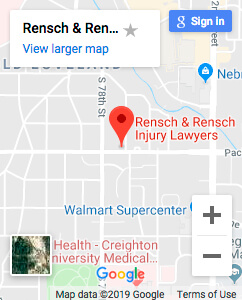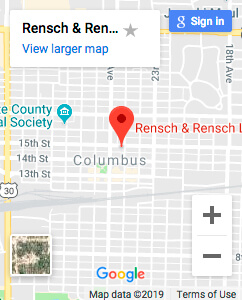Should Students be Able to Sue the State?
OMAHA, Nebraska. According to the Atlantic, the students of Detroit have sued the state, arguing that the state has denied them their constitutional right to an education. The lawsuit has reached a federal appeals court. The lawyers pursuing the lawsuit claim that Detroit’s poorest performing schools are so bad that the students might as well not be going to school at all. At the heart of the claim against the school system is that the schools are not teaching children how to read. By denying the children access to basic literacy, the lawsuit claims that the state is denying them their constitutional right to an education. The lawsuit claims that the children are being denied an opportunity to participate meaningfully in society due to the schools’ poor performance.
The lawsuit has the potential to possibly change how we interpret Constitutional law. As it stands, it isn’t clear whether the Constitution guarantees children a certain quality of education. Does an education include the ability to read? Does the Constitution guarantee literacy?
Some lawmakers claim that the case has little chance of succeeding. They claim that the Constitution does not guarantee children a quality education. Rather, it guarantees children merely access to education. However, different state Constitutions guarantee different things. In some states, the Constitution does address the quality of education. In other states, the Constitutions remain vague.
Part of the problem goes back to funding. Low-income and predominantly black and Latino schools tend to get less funding than their nearby white and affluent schools. What results is a disparity in education between students in poorer and wealthier school districts. Much of these problems can be traced back to segregation. Some hope that even if the cases don’t result in a court victory that they will at least lead states to revisit their state Constitutions to consider what they guarantee to each child.
Detroit isn’t the only city suing the state due to literacy issues. According to the Washington Post, lawyers in California are also suing the state because the children there are struggling to read. According to the Washington Post, less than 50% of California’s third through fifth grade students can meet statewide literacy benchmarks.
Suing the government can be tricky. Under sovereign immunity, the government can only be sued with the state’s consent. For students who are injured on school grounds or on school buses, parents may find themselves facing unique challenges when suing the state. But the idea of suing schools for their failure to provide children with a basic education is a new one. We’ll have to closely watch how the case unfolds.
Rensch & Rensch Law are personal injury lawyers in Omaha, Nebraska who handle a range of claims, from professional malpractice to car accident lawsuits. If you have suffered a loss or an injury due to another person or party’s neglect or negligence, you may have certain rights under the law. Visit us at Rensch & Rensch Law today to learn more.





